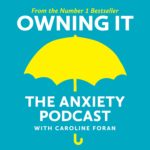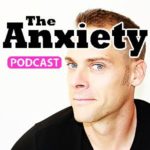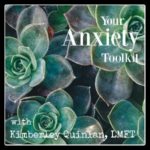Dealing with Anxiety
Self help techniques
Anxiety is one of the most prevalent mental health disorders, with one out of fourteen people around the world being affected. It is often described as an uncomfortable feeling of nervousness or worry about something that is happening, or might happen in the future. Everyone feels anxiety to some extent, it is part of being human and is the body’s way of signalling a problem or threat. However, it becomes a problem if it happens too often, goes on for a long time or impacts your ability to live your life as fully as you want to.
Use the self help resources below, which focus on Generalised Anxiety Disorder, to help you understand why it’s happening. Discover how to take back control. Learn ways of reducing your anxiety and incorporate these techniques into your everyday life to make it more manageable.
Note: Please talk to your doctor, or a mental health professional, if you experience severe or persistent anxiety.
Part of our Life Stages Collection.
View all available Pods using our Pod Index
START HERE
How to cope with anxiety
(15 mins)
In this talk Olivia Remes of the University of Cambridge details the difference between normal and extreme anxiety. The physical symptoms many feel and the importance of coping mechanisms and how to use them to lower anxiety yourself. She shares 3 resources we can each use (feeling in control, self-forgiveness and having a purpose in life) to help us harness the strength within ourselves.
WatchPODCASTS
Understanding and normalising anxiety
(49 mins)
Caroline Foran is joined by clinical psychologist Dr Clare Kambamettu. In this episode they unpack anxiety, getting a better understanding of why we feel it and how normal it is and exactly what’s happening in our body. Help you to get some clarity on why you might be experiencing anxiety, as well as reassuring you that whatever you’re feeling, for whatever reason – it’s VALID. They introduce the Assess and Address technique for anxiety, and discuss Cognitive Behavioural Therapy and why that works for anxiety.
PlayAll Things Anxiety with Kimberley Quinlan
(30 mins)
Kimberley Quinlan anxiety therapist speaks about helpful ways and mindfulness tools to manage anxiety:
How we respond to anxiety – recognise if its an actual dangerous event or the thought of a dangerous event .
Live our lives according to our values not our fear- anxiety doesn’t get to decide how I act, it can come along but it’s in the backseat,not driving the bus.
Don’t put unrealistic expectations on yourself – give yourself permission to make mistakes.
Stop being unkind to your self – label it as unhelpful and counter it.
Anxiety is uncomfortable but your relationship with it can get easier. It’s a beautiful day to do hard things.
Play7 Ways To Reduce Anxiety
(15 mins)
The 7 Daily Habits to take care of ourselves each day :
1. The importance of sleep.
2. What you Eat & Drink
3. Move
4. Connect
5. Laugh/ Play
6. Give yourself Space
7. Ground yourself in Nature
PlayFive Common Mistakes We Make Managing Anxiety
(28 mins)
Common mistakes we make when managing anxiety and what to do to to turn it around.
1. Spending too much time trying the solve the why, instead swing back to the present.
2. Spending too much time reading about how to fix it, instead practise how to fix it, have a 1:5 ratio of learning v doing.
3. Spending too much time beating yourself up, instead show yourself compassion.
4. Spending too much time going to others to make our anxiety go away, instead manage it yourself and use the steps and tools you have.
5. Spending too much time running away from fear, instead lean into it.
PlayUp to 25% off at Boden
Discover the new Autumn range at Boden. Beautiful new dresses, seasonal stables and knitwear essentials, they have everything to reinvigorate your style. Find our more here.
VIDEOS
Anxiety – Things You Can Do
(3 mins)
Watch this video for tips and advice for what you can do to help with anxiety : Notice it. Look after yourself. Get active. Breath calmly. Challenge unhelpful thoughts. Be positive. Confront it. Ask for help. For advice on improving your mental health, Visit Every Mind Matters.
WatchAnxiety Toolbox.
(11 mins)
Talking about coping mechanisms : a set of tools that you can keep in your own little anxiety toolbox, to help you cope straight away when you start to feel anxious. (Exercise. Get back to nature. Recognise and reset yourself. Stay hydrated. Journaling. Self care. Eat well).
Watch8 Tips on how to manage your mood with food.
(3 mins )
Tips to help you explore the relationship between what you eat and how you feel. Improving your diet can help give you: positive feelings, clearer thinking, more energy, calmer moods.
WatchHelloFresh meal plan offers
Eat healthy, save time and cut food waste with HelloFresh. Easy-to-follow recipes, with fresh, pre-portioned ingredients, delivered to your door. Get 60% off your first box, plus 25% off for two months. Find our more here
ARTICLES
21 Quick Tips to Change Your Anxiety Forever
+Lead a happier, healthier life with these calming strategies. You can read all the anti-anxiety advice in the world, but none of it matters unless you take action. Commit to 15-60 minutes per day and tackle a few of these 21 anxiety busters. The more you commit, the better you’ll feel. Psychology Today
Read ArticlePhysical Exercise and Anxiety
+Many people think that the mind and body are separate but evidence actually shows that there is a link between being physically active and enjoying positive mental wellbeing. Anxiety UK.
Read Article6 Easy Behavioural Interventions for Anxiety
+Mark Tyrrell’s therapy skills. Mark trains therapists and details some simple things people can do to reduce anxiety quickly – Name the anxiety, Face the anxiety, Breathe out the anxiety, Grade the anxiety, Discharge the anxiety, The AWARE technique.
Read Article
8 ways to calm anxious thoughts
+This article outlines tips and techniques for developing a calmer, less anxious state of mind.
Read Article

















